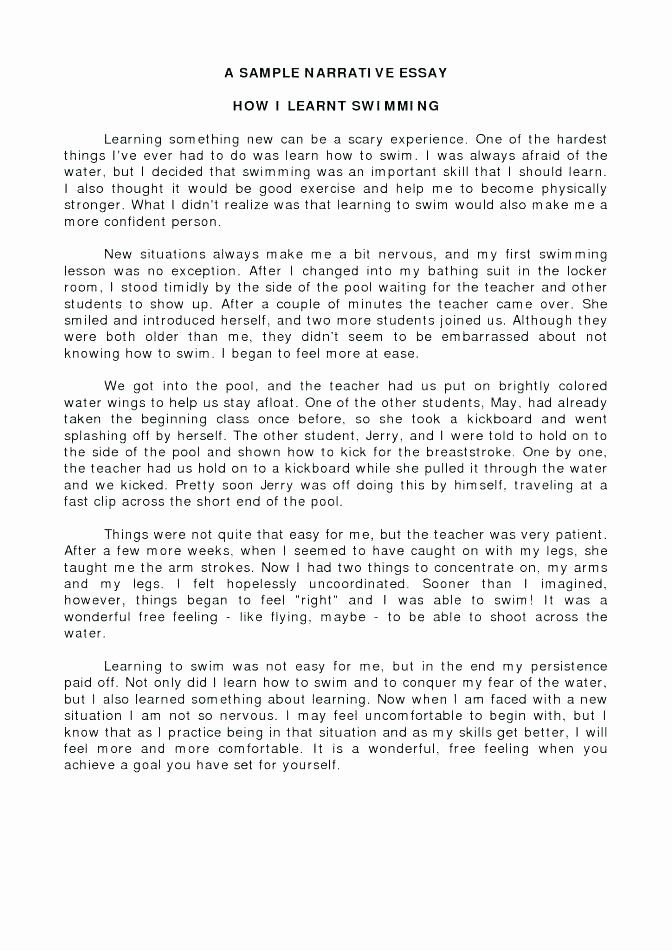Narrative essays are a unique form of storytelling within academic writing. Unlike other essay types that may focus on analysis, argumentation, or exposition, a narrative essay revolves around the art of storytelling. Through vivid descriptions, engaging characters, and a coherent plot, these essays transport readers into a world created by the author’s words. This comprehensive guide will delve into the nuances of crafting an exceptional narrative essay.

Table of Contents
Structure of a Narrative Essay
Before diving into the writing process, it’s crucial to understand the structural elements that constitute a well-crafted narrative essay. Here is a breakdown of the typical structure:
Introduction
Begin with a hook that grabs the reader’s attention, such as a captivating anecdote, a thought-provoking question, or a compelling quote.
Provide essential background information to set the stage for your story.
Present a clear thesis statement highlighting your narrative’s central theme or message.
Body Paragraphs
Develop the narrative in chronological order or a logical sequence, maintaining a smooth flow.
Use descriptive language to create a vivid setting and introduce the characters.
Incorporate dialogue and character interactions to make the story engaging.
Share your thoughts, emotions, and insights as the narrator to offer a personal perspective.
Ensure each paragraph connects seamlessly to the next, maintaining the narrative’s coherence.
Climax
Build tension and anticipation as the narrative reaches its climax, the story’s pivotal moment
where conflicts or challenges faced by the characters come to a head.
Resolution
Conclude the narrative by resolving the central conflict or dilemma.
Reflect on the story’s significance and impact on you as the narrator.
Connect the resolution back to your thesis statement to provide a satisfying closure.
Conclusion
Sum up the key points of your narrative essay.
Leave the reader with a memorable takeaway or a thought-provoking insight related to the narrative’s theme.
Tips for Writing a Captivating Narrative Essay
Show, Don’t Tell: Use descriptive language and sensory details to immerse your readers in the story.
Character Development: Create well-rounded characters with distinct personalities and motivations.
Dialogue: Incorporate authentic dialogue to make your characters come to life.
Pacing: Balance the pacing of your narrative to maintain reader engagement.
Theme: Choose a theme or message that resonates with your audience and remains consistent throughout the essay.
Revision: Edit and revise your essay multiple times to improve clarity, coherence, and grammar.
Sample Examples of a Narrative Essay
Title: “A Night Under the Stars”
Theme: Adventure and Discovery
Excerpt: “As I gazed up at the vast expanse of the night sky, I felt small and insignificant. It was a camping trip that changed my perspective on life, where I discovered the beauty of the cosmos and the profound connection between the universe and our existence.”
Title: “The Day I Met You”
Theme: Love and Relationships
Excerpt: “Our first encounter was like something out of a movie, filled with laughter, shared secrets, and stolen glances. This narrative explores the journey of two souls coming together against all odds, reminding me that sometimes, love finds a way.”
Title: “Into the Unknown: A Journey through Patagonia”
Theme: Exploration and Self-Discovery
Excerpt: “In the remote wilderness of Patagonia, I embarked on an adventure that tested my limits and reshaped my understanding of resilience. This narrative chronicles the challenges, triumphs, and profound self-discovery that unfolded during my journey.”
Title: “The Gift of Empathy”
Theme: Compassion and Moral Dilemmas
Excerpt: “One rainy night, I encountered a homeless woman who forever changed my perspective on humanity. This narrative explores the moral dilemma of whether to help or ignore those in need and delves into the transformative power of empathy.”
Title: “Echoes of Childhood”
Excerpt: “In the attic of my childhood home, I discovered a box of forgotten toys and souvenirs. As I sifted through these relics, a flood of memories washed over me, transporting me back to the innocence of youth. This narrative is a journey through the echoes of my childhood, a time when the world was simpler.”

25 Narrative Essay Topics

To inspire your creativity, here are 25 narrative essay topics spanning various life experiences and themes:
- A Life-Changing Trip: Reflect on a journey that transformed your perspective.
- Facing Fear: Share a story of conquering your deepest phobia.
- A Valuable Lesson: Describe an event that taught you an important life lesson.
- Unforgettable Family Moments: Recount a memorable family gathering or holiday.
- The Day I Met My Hero: Share an encounter with someone who inspired you.
- A Childhood Memory: Dive into a cherished memory from your youth.
- The Power of Friendship: Explore the dynamics of a meaningful friendship.
- A Personal Challenge: Discuss a hurdle you overcame and the lessons learned.
- A Sporting Triumph: Narrate a significant achievement in your athletic endeavors.
- An Artistic Journey: Chronicle your development as an artist or creative individual.
- The Day I Moved Away: Reflect on leaving your hometown or country.
- Love and Heartbreak: Describe a poignant romantic experience.
- An Encounter with Nature: Share a story of connection with the natural world.
- A Day in the Life: Offer a glimpse into a typical day.
- The Gift of Generosity: Discuss an act of kindness that deeply impacted you.
- Cultural Exploration: Detail an adventure exploring a new culture or country.
- Family Traditions: Explore the significance of a family tradition.
- A Historical Event: Transport readers to a specific historical moment through your eyes.
- A Personal Transformation: Narrate a period of self-discovery and growth.
- The Mystery Unraveled: Describe a situation where you solved a perplexing mystery.
- A Brush with Danger: Recount a close call or a thrilling adventure.
- An Unlikely Friendship: Share a story of bonding with someone unexpected.
- Lessons from a Pet: Reflect on the meaningful connection with a beloved pet.
- Facing Prejudice: Discuss an experience where you confronted discrimination.
- The Road Less Traveled: Narrate a journey off the beaten path.
In conclusion, crafting a compelling narrative essay combines storytelling skills, structural understanding, and creativity. With this guide, ten narrative essay examples, and 25 inspiring topics, you can embark on your narrative writing journey, weaving captivating tales that resonate with your readers.
Story Telling Techniques Used in Narrative Essays
- Narrative essays employ various storytelling techniques and explore themes to engage readers and convey a meaningful message. Here, we’ll delve into some of the common techniques and themes used in narrative essays:
- Descriptive Language: Effective narratives use vivid and sensory-rich descriptions to paint a picture for the reader. By appealing to the senses, writers immerse readers in the story.
- Character Development: Creating well-rounded, relatable characters is crucial. Readers should connect with and care about the characters in the narrative.
- Dialogue: Authentic dialogue brings characters to life, providing insight into their personalities, relationships, and conflicts.
- Show, Don’t Tell: Instead of explicitly stating emotions or events, skilled writers “show” through actions, thoughts, and dialogue, which makes the story more engaging and allows readers to draw their own conclusions.
- Pacing: Maintaining a balanced pace keeps readers engaged. Speed up during intense moments, slow down for reflection, and vary the tempo to create tension and release.
- Flashbacks and Foreshadowing: Skillful use of flashbacks (past events) and foreshadowing (hinting at future developments) can add depth and intrigue to the narrative.
- First-Person Point of View: Narratives are often written from the first-person perspective, allowing readers to step into the narrator’s shoes and experience the story intimately.
- Symbolism: Symbols and metaphors can add meaning to a narrative, allowing for deeper exploration of themes and emotions.
- Suspense: Create anticipation and suspense by withholding information or introducing unexpected twists and turns.
Common Narrative Essay Themes
- Coming of Age: Narratives often explore the transition from youth to adulthood, focusing on personal growth, self-discovery, and the challenges faced during this period.
- Love and Relationships: Love stories, whether romantic, familial, or platonic, are a timeless narrative theme. They delve into the complexities of human connections.
- Identity and Self-Discovery: Narratives may revolve around a character’s quest to understand their true self, cultural identity, or place in the world.
- Overcoming Challenges: Stories of resilience, perseverance, and triumph in adversity are compelling narratives that resonate with many readers.
- Moral Dilemmas: Exploring ethical questions and difficult choices can spark thought-provoking discussions and inner conflicts within narratives.
- Journeys and Adventures: Physical or metaphorical journeys provide a backdrop for self-discovery and change. These narratives often feature exploration and personal transformation.
- Loss and Grief: Narratives dealing with loss, mourning, and healing can be deeply moving and emotionally resonant.
- Nature and the Environment: Stories set in the natural world explore humanity’s relationship with nature, conservation, and the beauty and power of the environment.
- Social and Cultural Commentary: Narratives can address societal issues, cultural clashes, or historical events, offering a lens through which readers can reflect on broader themes.
- Fantasy and Escapism: Fantasy narratives transport readers to imaginary worlds where the rules of reality may differ, allowing for exploring unique themes and ideas.
- Memory and Nostalgia: Narratives often draw upon the past, invoking nostalgia and examining the impact of memory on the present.
- Inspirational Stories: These narratives focus on extraordinary individuals or events that inspire and motivate readers.
- Humor and Satire: Combining humor with storytelling can entertain readers while providing social commentary or critiquing societal norms.
Frequently Asked Questions
What is a narrative essay?
A narrative essay is a form of writing in which the author tells a personal story or anecdote to convey to the reader a message, lesson, or insight.
What are the elements of a narrative essay?
Elements of a narrative essay include plot, characters, setting, conflict, resolution, theme, point of view, dialogue, and tone.
How do I choose a topic for a narrative essay?
Choose a topic by reflecting on personal experiences, considering emotions, identifying a theme, brainstorming ideas, selecting a significant story, and considering your target audience.

